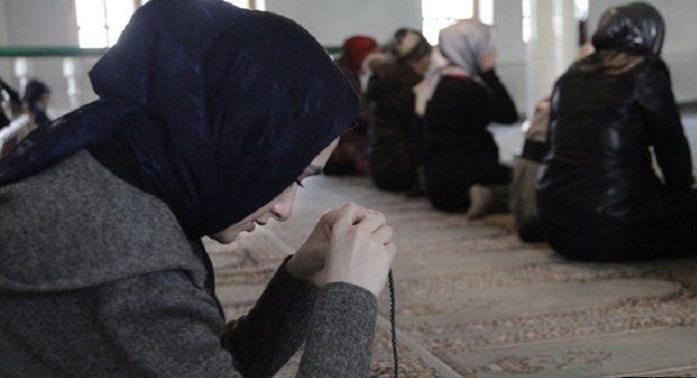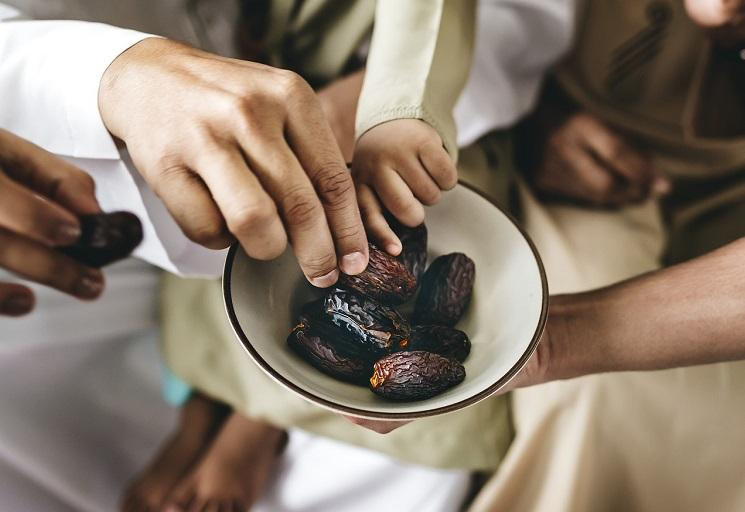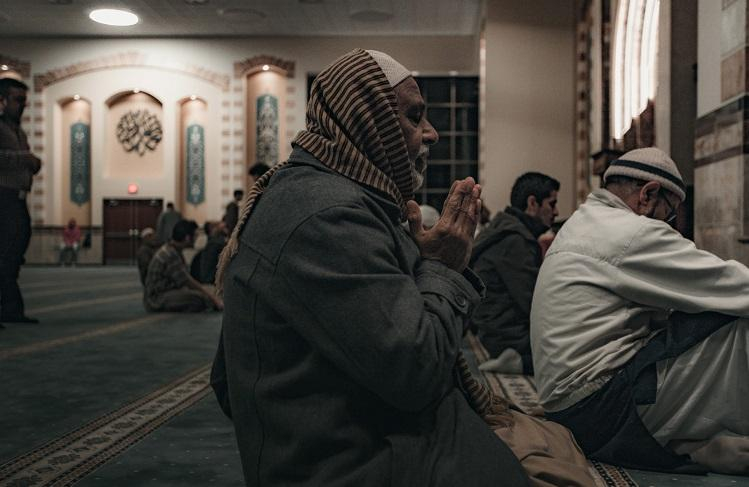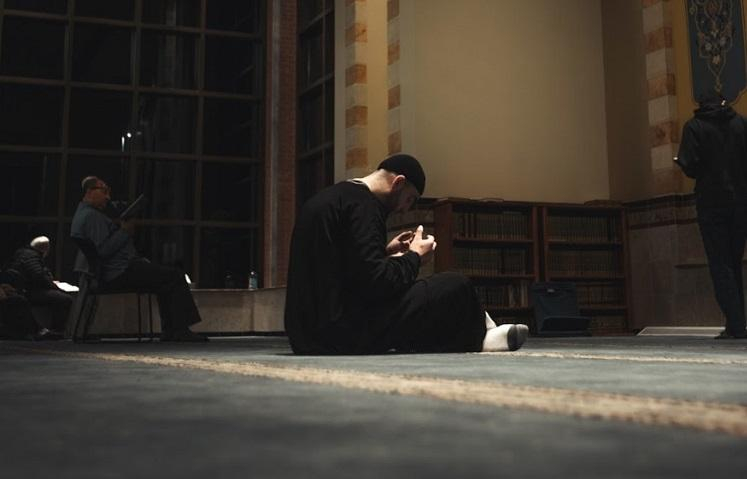9 Ways to Carry Out Your Ramadan Goals Beyond the Fasting Month
Faith
|
May 31, 2019
|
6 MIN READ

By Rowayda Kawji
It’s been said that it takes around one month to form a good habit or break a bad one, which makes Ramadan the perfect time for actualizing our goals. For many of us, Ramadan is an almost universal spiritual high point that provides the motivation and inspiration to keep us working on our goals, whatever they may be.
But as the holy month comes to a close, it can be hard to maintain that level of spiritual motivation to continue the good habits we formed, stay away from the bad ones we broke - to continue to manifest our goals and intentions. It doesn’t have to be that way! If we center our goals and put some measures into place to help us, we can continue to carry the spirit, ibadah (worship) and habits of Ramadan beyond the fasting month. With that in mind, here are nine tips for how to carry your Ramadan deen-based practices past Eid and throughout the year.
Use Ramadan as a Measure

Image source: Pinterest
A great way to gauge how sincere you have been in working on your goals and bettering yourself is to use Ramadan as a measure of your progress. You can do this by comparing yourself at the beginning of this Ramadan (in whatever your intentions and goals were) to yourself at the beginning of next Ramadan and future Ramadans. This way, you can measure how much you’ve changed or accomplished within the span of one year. A good way to keep track is to write down your goals so that you won’t forget them over the year and to reflect on them at the beginning of next Ramadan.
If you find that you’ve fallen back to poor habits or haven't quite reached your goals, you’ll know to revisit them again and see if there are other ways you can actualize your goals, or even just progress further with them, in the coming year. Renewing our intentions is one of the strongest things we can do.
Continue Fasting Even After Ramadan

Image source: Unsplash
A good way to keep your spirituality uplifted after Ramadan is to continue fasting. Fasting allows us to focus on ourselves and our worship, reminds us of our mortality and the vulnerability of our less fortunate brothers and sisters, and provides us with the opportunity to seek the mercy and forgiveness of Allah. As the Quran says, it helps us learn self restraint. Some of the best days to fast outside of Ramadan are Mondays and Thursdays, the day of Ashura, the day of Arafah, six days in the month of Shawal and during the month of Shaaban.
Make the Masjid Your Second Home

Image source: @drwootwoot
One of the most amazing and energizing aspects of Ramadan is how worshipping with others makes tasks as challenging as fasting the whole day and praying through the night much easier. Being a part of a religious community motivates us to worship and continue working on our goals, keeps us accountable for our actions and places us (Insha’Allah) in positive company.
The end of tarawih prayers should not have to mean the end of daily trips to the masjid. Try to pray at least one prayer at your local masjid every day. If you’re an early bird, heading to the masjid for Fajr can keep you energized and in a positive and spiritual mindset for the rest of the day. If you prefer, Isha can be a great time to go to the masjid after work and dinner to wrap up your day on a positive note and reflect how you’ve worked on yourself and your goals through the day.
If it isn’t possible for you to attend your masjid regularly due to responsibilities at home, caregiving, illness or maybe disability, perhaps try and read one of your salah in congregation at home. Or try and make it to your local masjid once a week, if that is more feasible!
Don’t Stop Giving

Image source: HeatherPaque from Pixabay
The highlight of Ramadan for many people is giving in charity or working in charitable endeavors. However, making charity a habit throughout the year has a multitude of benefits, starting with helping those in difficult circumstances and ending with focusing on the mercy of Allah. Reminding ourselves of our intention every time we give - that we are giving in the name of Allah and for the purpose of helping others and not for the sake of attention - reminds us of those who are most vulnerable and how much we have for which to be grateful. This allows us to draw our thoughts away from the frivolities of our daily lives and focus more on our spiritual goals.
Don’t Let Your Quran Collect Dust

The end of daily fasting should not mean the end of reading the Quran daily. Continually reading the Quran comes with endless benefits, one of which is helping you hone in on your spiritual goals. Try to read a manageable amount from the Quran every day. Alternatively, you can focus on surahs in the Quran that have specific benefits that pertain to your goals. For instance, memorizing the first ten ayahs of Surah Kahf will save one from the Dajjal; reading Ayatul Kursi after every fard salah will keep one under the protection of Allah. Reading Surah Yaseen will allow one’s past sins to be forgiven, and reading Surah Kahf on Friday will illuminate one’s life until the following Friday.
Athkar on Your Tongue, Allah on Your Mind

Image source: @drwootwoot
Another great way to keep yourself from getting immersed in the distractions of the dunya (the world) and to keep you focused on achieving your spiritual goals is to constantly practice dhikr, or remembrance of Allah. An easy way to do this is to memorize the morning and evening athkar and recite them every day, so that twice daily, you are taking a moment of your time just to remember Allah and focus your thoughts on His protection and blessing in your endeavors of the day.
Hold Your Tongue

During Ramadan, it is not uncommon to hear one say Allahuma inee sa’im, or “By Allah, I am fasting” as a response to frustrating or tempting situations. Ramadan reminds us not to get angry or backbite and to hold our tongues in order to gain the full reward of our fasting and worship. Continuing this practice after Ramadan not only makes Allah pleased with us, but improves our character and personal relationships.
Pray Like Ramadan Didn’t End

For many of us, Ramadan means taking advantage of every sunnah prayer, tarawih and tahajjud. This doesn’t have to be limited to just the month of Ramadan. If you only prayed fard before, perhaps make an effort to pray the sunnah prayers. Also, an easy way to enrich your spiritual connection is to set your alarm 15 minutes before fajr to pray tahajjud. This also ensures that you’re awake and praying within the last third of the night which is the time in which du’as are most likely to be accepted. If waking for tahajjud proves too difficult, consider praying it once a week.
Substitute Quran for Music and TV

Another way to stay focused on your goals and keep you spiritually high outside of Ramadan is to continue to replace music and TV with Quran (if that is what you did in Ramadan). If you have a long commute or like to listen or watch while studying or working, rather than falling back to listening to music, continue the habit of listening to Quran. It will keep your heart at ease during the day, will help you in memorizing, and will focus your thoughts on what is truly important.
The beauty of Ramadan is that we are constantly in the remembrance of Allah, and that keeps us constantly aware of our mortality. We focus on our goals and make intentions but often struggle to maintain that same spiritual high after the month ends. We hope that these tips will help you to continue to actualize your goals, to work on yourself and your spiritual connection, and to form the best of habits.
Do you have any post-Ramadan goals? How do you plan to pursue them? Share with us in the comments below!
Subscribe to be the first to know about new product releases, styling ideas and more.
What products are you interested in?

